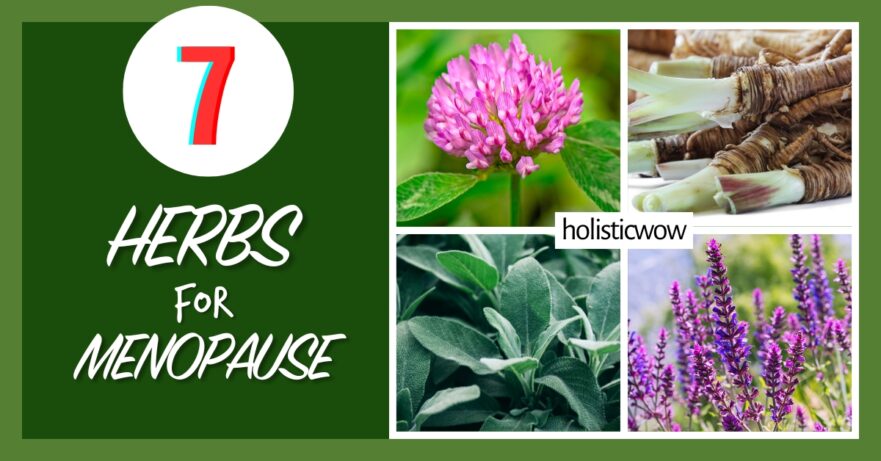In this article about herbs for menopause:
🌿 Best Herbs for Menopause Relief | 📜 Herbal Preparations and Recipes for Menopause Relief | ☯️ Integrating Herbs into Daily Life for Menopause Relief | 🌱 Navigating Herbs Safely
Menopause is a significant life phase for women, often accompanied by symptoms such as hot flashes, mood swings, and sleep disturbances. These changes are primarily due to hormonal fluctuations that can disrupt daily life.
Herbs like black cohosh, red clover, and dong quai are often used as natural remedies to manage menopausal symptoms. These herbs may help by acting on estrogen receptors in the body, which could help balance hormone levels and relieve discomfort associated with menopause.
This post outlines practical ways to incorporate these herbs into daily routines. It offers recipes for herbal teas and highlights lifestyle adjustments that enhance the effectiveness of herbal remedies for menopause relief.
Key Takeaways
- 💚 Herbal Estrogen Mimics: Some herbs like red clover and dong quai contain phytoestrogens that may help balance hormone levels, potentially alleviating menopausal symptoms such as hot flashes.
- 😴 Sleep Improvement: St. John’s wort is beneficial in managing mood swings and mild to moderate depression in menopause, which can indirectly improve sleep quality. Valerian may enhance sleep quality by reducing sleep latency and nocturnal awakenings.
- 🌿 Daily Herb Integration: Incorporating specific herbs into daily routines through teas and supplements can effectively manage menopause symptoms and improve overall well-being.
🌿 Best Herbs for Menopause Relief
Menopause marks a significant transition in a woman’s life, characterized by the end of menstrual cycles and a natural decline in reproductive hormones, primarily estrogen. This shift often brings a host of symptoms, including hot flashes, night sweats, mood swings, sleep disturbances, and sometimes cognitive changes. These symptoms result from the body adjusting to varying hormone levels and can significantly affect daily life and overall well-being.
To address these challenges, many turn to herbal remedies known for their potential beneficial effects on menopausal symptoms. Key herbs such as black cohosh (Actaea racemosa), red clover (Trifolium pratense), dong quai (Angelica sinensis), valerian (Valeriana officinalis), sage (Salvia officinalis), St. John’s wort (Hypericum perforatum), and chaste tree (Vitex agnus-castus) are commonly utilized in this context. Each of these herbs may play a role in providing relief from the varied symptoms experienced during menopause.
Black cohosh (Actaea racemosa or earlier Cimicifuga racemosa)
Black cohosh (Actaea racemosa or earlier Cimicifuga racemosa) has a long history of use in traditional medicine for alleviating symptoms of menopause. This herb is often used as an alternative to hormone replacement therapy to manage menopausal symptoms such as hot flashes, night sweats, and mood swings. While the evidence is mixed, some clinical studies suggest that black cohosh may help reduce the frequency and severity of hot flashes and other menopausal symptoms [1]. However, further research is needed to confirm these effects. Black cohosh is believed to work by modulating serotonin receptors, which can influence mood and thermoregulation. However, the exact mechanism of action remains unclear. It is important to note that some studies have reported potential liver toxicity [2], so it is recommended to use black cohosh under the guidance of a healthcare provider.
Red clover (Trifolium pratense)
Red clover (Trifolium pratense) has a longstanding history of use in traditional medicine, particularly for alleviating symptoms of menopause and potentially improving cardiovascular health. Rich in isoflavones, a type of phytoestrogen, red clover may mimic the effects of estrogen in the body, which can benefit menopausal women who experience natural decreases in estrogen levels. Clinical studies [3] [4] have suggested that red clover might help reduce hot flashes and may improve bone density (though further research is needed to fully confirm these effects). It also may positively affect arterial elasticity [5], which supports heart health in postmenopausal women.
Dong quai (Angelica sinensis)
Dong quai (Angelica sinensis) is valued in Traditional Chinese Medicine for its ability to enrich the blood, promote circulation, and regulate the menstrual cycle. Although the evidence supporting its effectiveness for menopausal symptoms is limited and mixed, some studies suggest it may help balance estrogen levels and potentially alleviate symptoms [6] such as hot flashes and mood swings. However, these results are not consistent, and further research is needed. Dong quai is often used with other herbs to enhance its effects on hormonal balance and overall women’s health.
Valerian (Valeriana officinalis)
Valerian (Valeriana officinalis) is recognized for its sedative properties and ability to aid sleep and reduce anxiety. For menopausal women, valerian may be especially helpful in managing sleep disturbances and mood swings exacerbated by hormonal changes. The root of the valerian plant contains active compounds that promote relaxation and reduce nervous tension, making it beneficial for improving life quality during menopause when sleep patterns are often disrupted [7] [8].
Sage (Salvia officinalis)
Sage (Salvia officinalis) is important in both culinary and medicinal practices worldwide, and it is noted particularly for its potential benefits for menopausal symptoms. It is thought to have estrogenic effects, which may help mitigate common menopausal symptoms such as hot flashes and night sweats [9]. Furthermore, sage has been studied for its potential cognitive-enhancing properties, which may be beneficial in managing the cognitive decline some women experience during menopause. Its anti-inflammatory and antioxidant properties also contribute to overall health.
St. John’s wort (Hypericum perforatum)
St. John’s wort (Hypericum perforatum) is primarily known for its antidepressant effect and is commonly used for treating mild to moderate depression. It may also be beneficial during menopause, a time when many women experience mood swings and depressive symptoms due to hormonal changes. The active components in St. John’s wort help to alleviate psychological symptoms of menopause, including hot flashes and depression, by modulating neurotransmitters such as serotonin and dopamine [10] [11]. Due to potential interactions with various medications, consulting with a healthcare provider is crucial before using St. John’s wort.
Chaste tree (Vitex agnus-castus)
Chaste tree (Vitex agnus-castus) has a long history in herbal medicine, particularly for conditions related to women’s reproductive health. It may be effective in managing symptoms of menopause and other menstrual disorders by affecting the pituitary gland, which in turn can influence the levels of various hormones, including progesterone. Chaste tree is particularly useful for addressing irregular cycles and hormonal imbalances that can occur during the perimenopausal period. Regular use may help stabilize menstrual cycles and reduce menopausal symptoms such as hot flashes and mood changes [12].
📜 Herbal Preparations and Recipes for Menopause Relief
Menopause can be a challenging time due to various physical and emotional changes. Herbal remedies offer natural support to manage these symptoms. Here, we provide detailed recipes using essential herbs known for their efficacy in alleviating menopause symptoms.
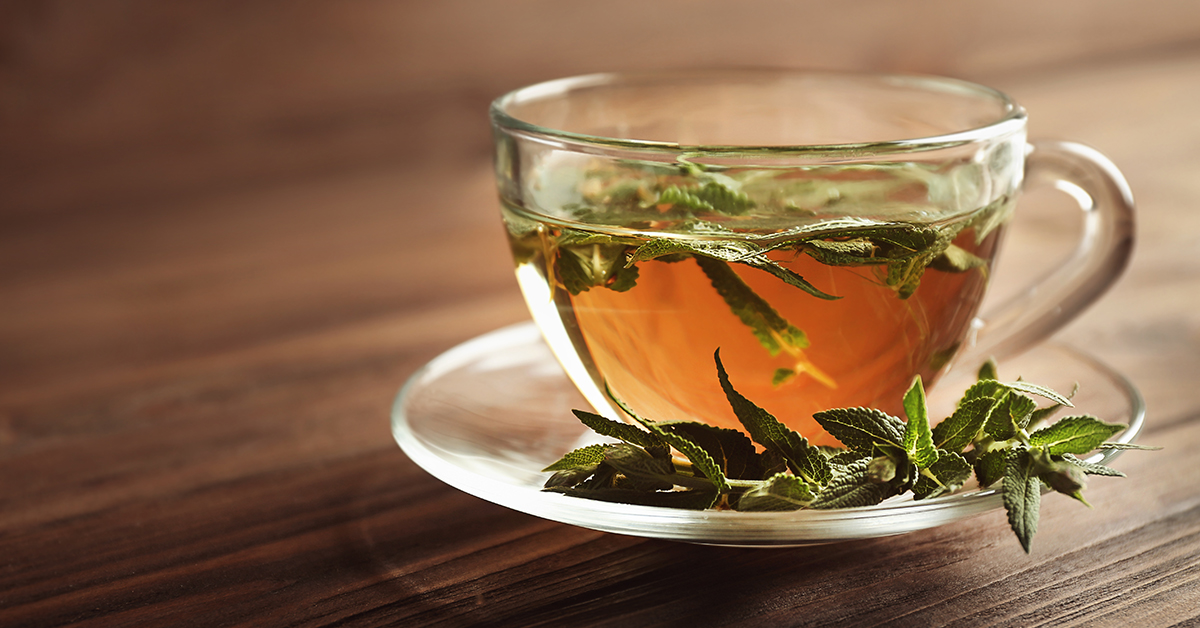
Gentle Menopause Tea
Ingredients:
- 1 teaspoon dried sage
- ¼ teaspoon dried dong quai root
- 1 cup of boiling water
Preparation:
- Combine sage and dong quai in a teapot.
- Pour 1 cup of boiling water over the herbs and steep for 10 minutes.
- Strain and consume once daily to help reduce night sweats and balance mood swings.
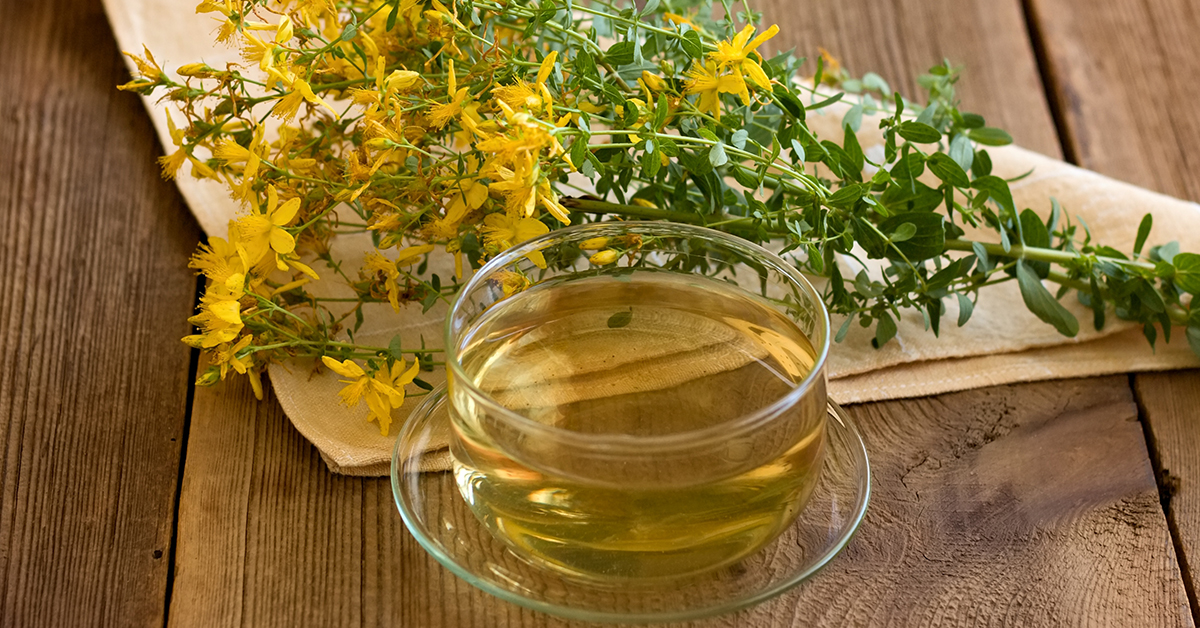
Sleep and Mood Support Tea
Ingredients:
- 1 teaspoon dried St. John’s wort
- 1 teaspoon dried sage
- ¼ teaspoon dried valerian root
- 1 cup of boiling water
Preparation:
- Mix valerian, St. John’s wort, and sage in a teapot.
- Add boiling water and let steep for 15 minutes.
- Strain and drink in the evening to aid sleep and improve mood stability.
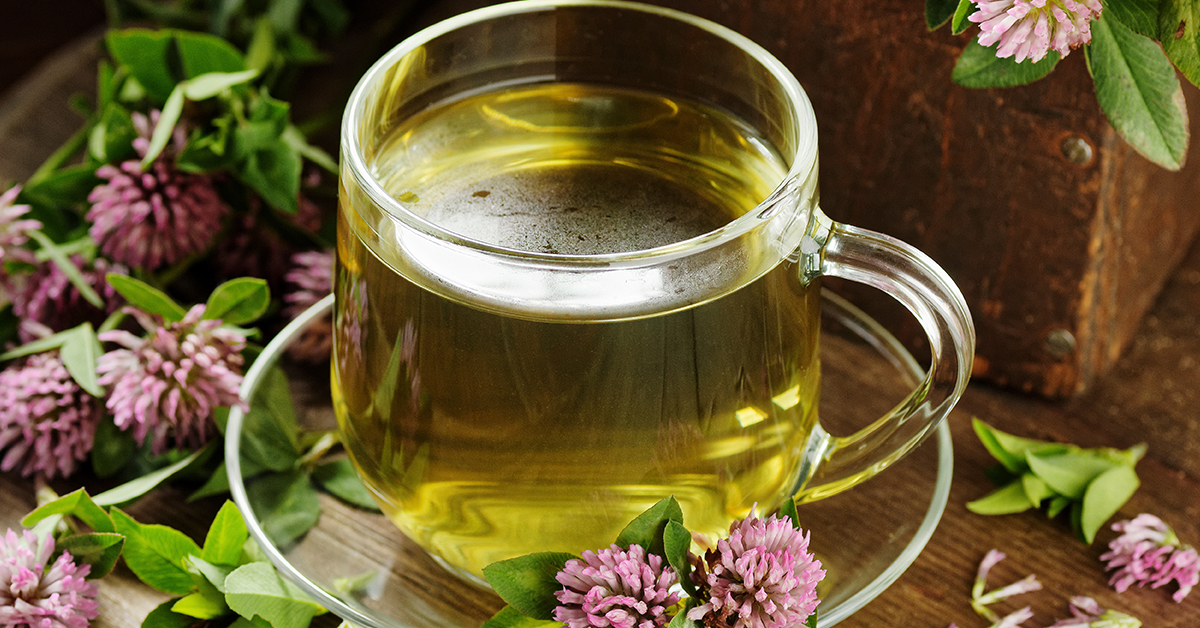
Comprehensive Menopausal Support Blend
Ingredients:
- 1 teaspoon dried red clover
- ½ teaspoon dried black cohosh root
- ¼ teaspoon dried dong quai
- ¼ teaspoon dried valerian root
- 1 cup of boiling water
Preparation:
- Combine all herbs in a teapot.
- Pour boiling water over the mixture and steep for about 15 minutes.
- Strain and drink twice daily to help manage hot flashes, support sleep, and promote hormonal balance.
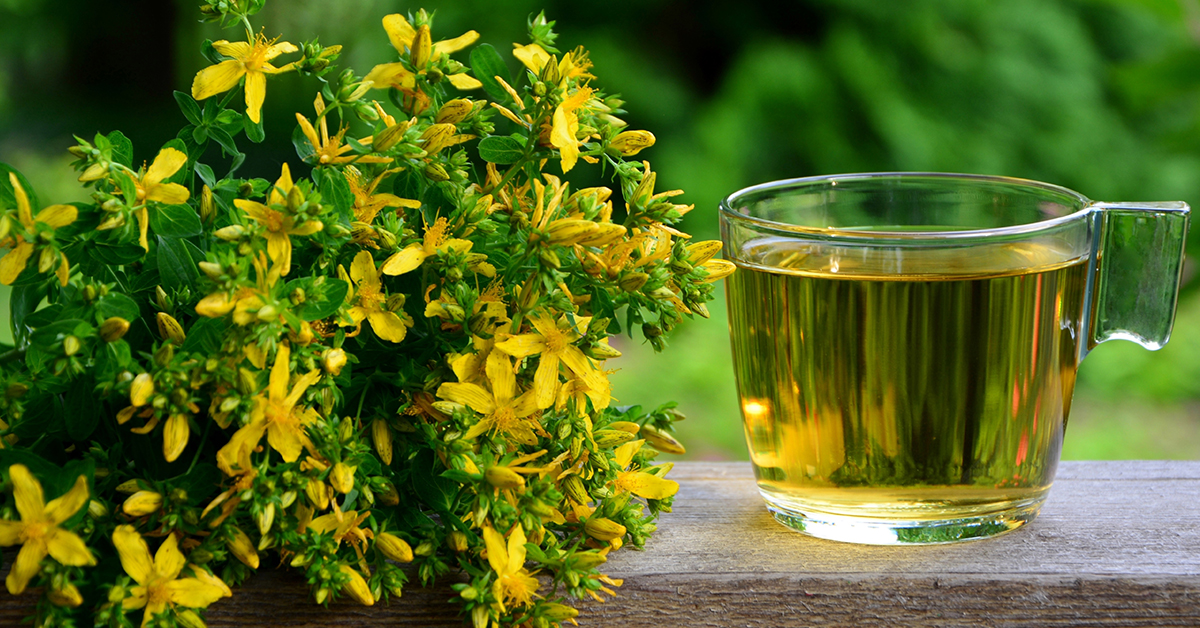
Hormonal Harmony Infusion
Ingredients:
- 1 teaspoon dried red clover
- 1 teaspoon dried St. John’s wort
- ½ teaspoon dried chaste tree berries
- ½ teaspoon dried sage
- 1 cup of boiling water
Preparation:
- Add all ingredients to a teapot.
- Cover with boiling water and steep for 10-15 minutes.
- Strain and consume daily in the morning.
- This infusion helps regulate hormonal levels, reduces hot flashes, and improves mood.
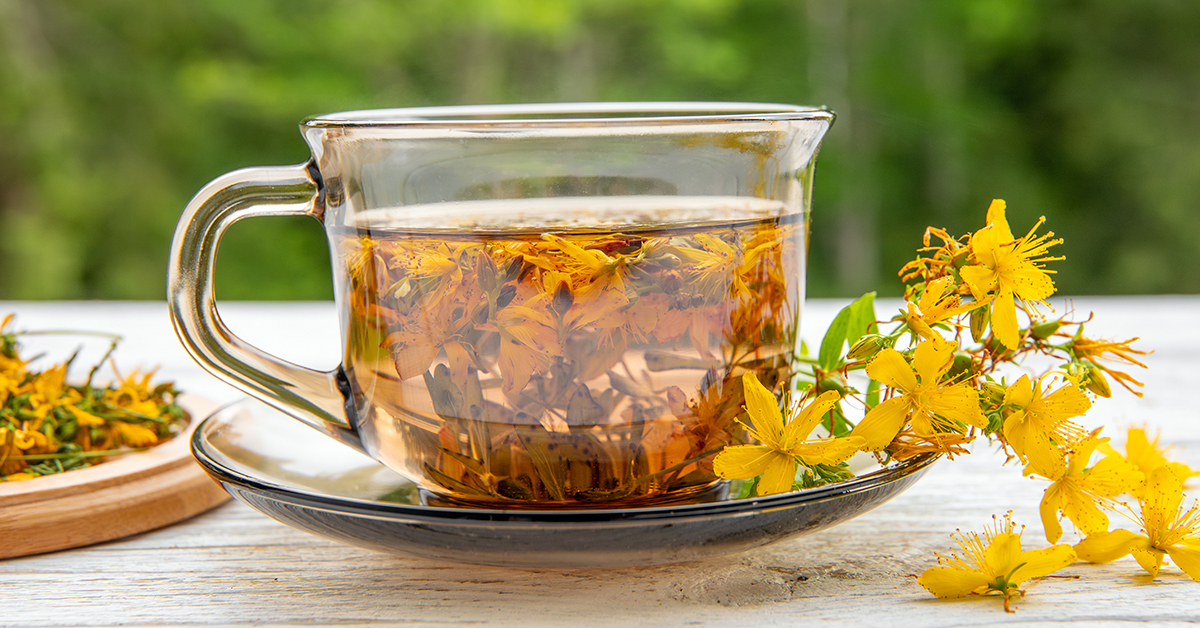
Ultimate Menopause Symptom Relief Tea
Ingredients:
- 1 teaspoon dried red clover
- ½ teaspoon dried black cohosh root
- ½ teaspoon dried dong quai root
- ½ teaspoon dried St. John’s wort
- ½ teaspoon dried chaste tree berries
- 1 cup of boiling water
Preparation:
- Place all herbs in a teapot.
- Pour boiling water over the herbs and let them steep for about 15 minutes.
- Strain and drink twice daily.
This potent blend targets a comprehensive range of menopausal symptoms, including hot flashes, mood swings, sleep disturbances, and hormonal imbalances.
These recipes are designed to be integrated into daily routines for natural menopause symptom management. However, it’s important to consult with a healthcare provider before starting any new herbal regimen, especially if you are taking other medications or have health concerns. Adjust the recipes according to personal preferences and needs.
☯️ Integrating Herbs into Daily Life for Menopause Relief
Menopause is a significant phase in a woman’s life that brings various physical and emotional changes. Integrating specific herbs into daily routines can help manage these symptoms effectively. Here are some practical tips for using these herbs daily and additional practices that complement their use.
Daily Use and Lifestyle Integration
- 🫖 Herbal Teas: Incorporating herbal teas into your daily routine is an effective way to utilize menopause-relieving herbs. For instance, starting your day with a cup of tea made from sage or red clover can help alleviate morning symptoms like mood swings and hot flashes. Drinking tea containing valerian or lemon balm in the evening may improve sleep quality.
- 💚 Herbal Supplements: If brewing tea is not convenient, consider herbal supplements in capsule or tincture forms. Supplements containing black cohosh, dong quai, or chaste tree can be part of your daily supplement regimen to help balance hormones and manage symptoms.
Additional Practices to Support Menopause Management
- 🥦 Dietary Changes: Incorporating foods rich in phytoestrogens, such as soy products and flaxseeds, can help mitigate some menopausal symptoms by providing a natural source of estrogen. It’s also beneficial to increase the intake of calcium-rich foods like dairy products and leafy greens to support bone health during menopause.
- ♨️ Aromatherapy: Using essential oils such as clary sage or lavender can complement the effects of herbal remedies by promoting relaxation and reducing stress. Diffusing these oils at home or applying them topically with a carrier oil can enhance mood and improve sleep.
- 🏃♀️ Regular Physical Activity: Engaging in regular exercise, such as yoga or brisk walking, can help manage weight, reduce stress, and improve overall well-being during menopause. Physical activity also helps regulate hormones and improve mood.
- 🧘♀️ Stress Management Techniques: Practices like mindfulness meditation or deep breathing exercises can be particularly beneficial in managing the emotional challenges of menopause. These techniques help in reducing stress, which can exacerbate menopausal symptoms like hot flashes and mood swings.
Integrating these herbs and complementary practices into your daily life can create a holistic approach to managing menopause symptoms. It’s important to start with small doses to see how your body reacts and ensure these herbal remedies suit you, especially if you take other medications.
This integrated approach helps in addressing the symptoms of menopause more effectively and enhances your overall quality of life during this transition.
🌱 Navigating Herbs Safely
Starting with small doses is the first step when adding herbal remedies to your health routine. This approach lets you see how you respond and adjust amounts for the best effect, keeping safety in mind. While many herbs are safe, everyone’s body reacts differently. If you notice any side effects, it’s important to stop and think about what might be causing them.
Remember, herbs can sometimes interact with prescription medicines. These interactions might make your medicines work too well or not well enough, which is why talking to a healthcare provider or an herbalist is essential. This is especially crucial if you’re pregnant, breastfeeding, taking medications regularly, or have an existing health condition. Getting advice tailored to your situation can help you avoid any unnecessary risks.
For kids and older adults, being extra careful with herbs is important. Their bodies might react more strongly to herbal remedies, and the chance of side effects or interactions could be greater. Before giving herbal treatments to children or elderly family members, getting advice from a professional is a must to ensure their safety.
By being cautious and seeking expert advice when needed, you can make herbal remedies a safe part of your wellness plan. This careful approach allows you to enjoy the benefits of herbs while keeping yourself and your family safe.
FAQ
How can black cohosh help with menopause symptoms?
Black cohosh (Cimicifuga racemosa or Actaea racemosa) is widely recognized for its potential to treat menopausal symptoms, particularly hot flashes and mood swings. Black cohosh is believed to work through its effects on serotonin receptors, which may help regulate mood and body temperature, though it does not act as a phytoestrogen. Clinical studies have shown that black cohosh may help reduce the frequency and intensity of hot flashes and might also assist in managing other symptoms, such as sleep disturbances and irritability. It's important to use black cohosh under guidance, as it is potent and may interact with other medications.
Can sage and red clover be used together to manage menopause symptoms?
Yes, combining sage (Salvia officinalis) and red clover (Trifolium pratense) can be beneficial for managing menopause symptoms. Sage has properties that may help reduce excessive sweating and hot flashes, which are common complaints during menopause. Its potential cognitive-enhancing effects can also be advantageous for those experiencing mild cognitive impairment associated with menopause. On the other hand, Red clover is rich in isoflavones, a type of phytoestrogen that helps manage symptoms by mimicking estrogen. Together, these herbs can offer a synergistic effect, enhancing overall relief from menopausal discomforts like hot flashes, night sweats, and mood swings. However, as with any herbal treatment, consultation with a healthcare provider is recommended to ensure safety and proper dosage.
What are the benefits of dong quai for menopause, and are there any precautions?
Dong quai (Angelica sinensis), often referred to as "female ginseng," is valued for its potential to improve blood circulation and support overall vitality during menopause. This herb is particularly noted for its potential in alleviating menopausal symptoms such as hot flashes, mood instability, and vaginal dryness. However, studies have shown mixed results regarding its effectiveness. Some studies suggest it may help regulate hormonal balance, while others show no significant benefit. There is limited evidence that dong quai has estrogenic effects or significant clinical benefits for menopausal symptoms. It is crucial to exercise caution with dong quai, as it can increase photosensitivity, making the skin more susceptible to sunburn. Additionally, dong quai should not be used in conjunction with blood thinners or by those with bleeding disorders due to potential interactions and the risk of increased bleeding. Always consult a healthcare professional before starting any new herbal remedy to ensure it does not interfere with other medications or health conditions.

